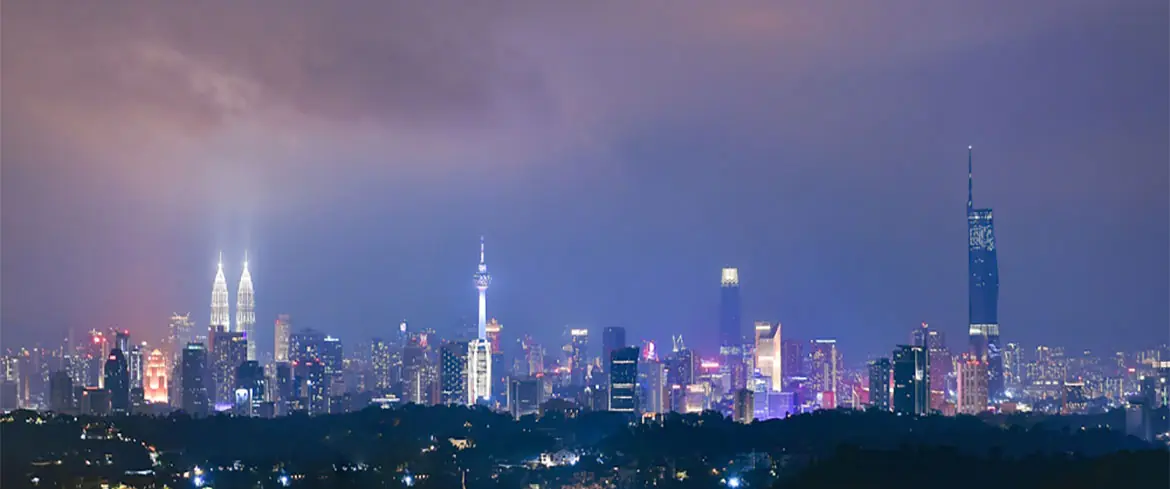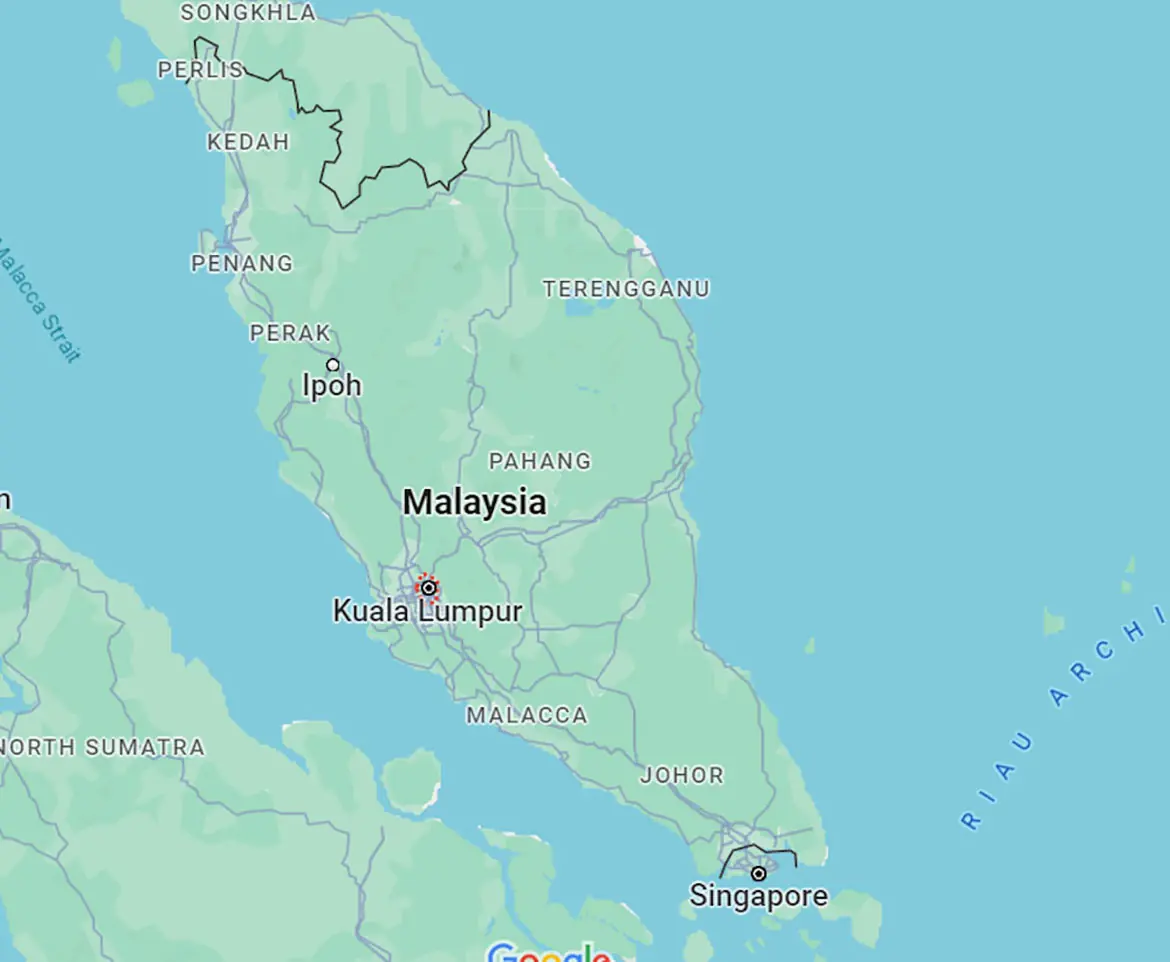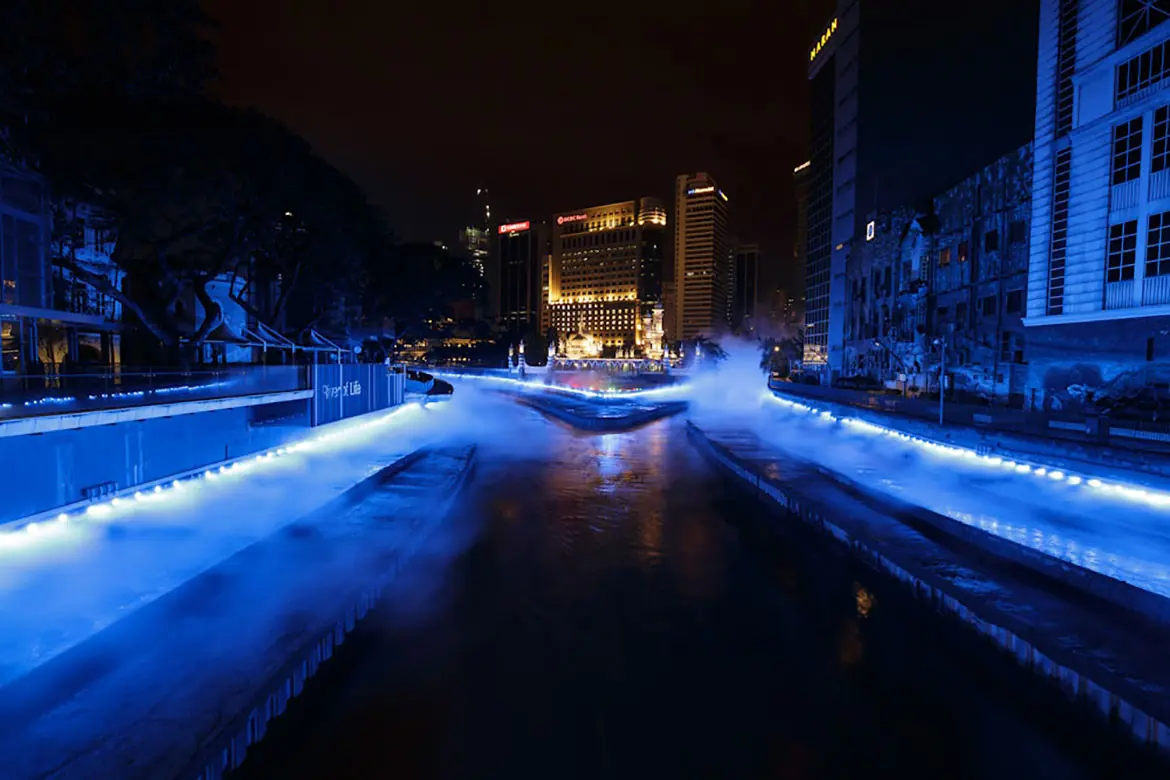Feng Shui Consultant Kuala Lumpur

Kuala Lumpur is the vibrant capital city of Malaysia, known for its modern skyline, diverse cultural heritage, and bustling street life. Here's a detailed description:
- Cultural Diversity: Kuala Lumpur is a melting pot of cultures, with influences from Malay, Chinese, Indian, and indigenous communities. This diversity is reflected in the city's architecture, cuisine, and traditions.
- Skyscrapers and Modern Infrastructure: The cityscape is dominated by towering skyscrapers, including the iconic Petronas Twin Towers, once the tallest buildings in the world. These modern structures stand alongside colonial-era buildings, mosques, temples, and traditional markets.
The new Merdeka 118 Tower will be the second-tallest building in the world.
- Green Spaces: Despite its urban development, Kuala Lumpur boasts several green spaces and parks, providing residents and visitors with areas for relaxation and recreation. The Lake Gardens, KLCC Park, and Bukit Bintang Walk are popular destinations for locals and tourists alike.
- Shopping and Entertainment: Kuala Lumpur is a shoppers' paradise, with a wide range of shopping malls, markets, and boutiques offering everything from luxury goods to traditional handicrafts. Bukit Bintang is a vibrant district known for its shopping, dining, and nightlife options.
- Cuisine: The city's food scene is diverse and delicious, with various culinary influences to explore. Visitors can sample Malay, Chinese, Indian, and international cuisines at street food stalls, hawker centres, and upscale restaurants throughout the city.
- Cultural Landmarks: Kuala Lumpur is home to several cultural landmarks and attractions, including the Batu Caves, a Hindu shrine located in limestone caves on the city's outskirts, and the Sultan Abdul Samad Building, a historic colonial-era structure in Merdeka Square.
- Transportation: The city has a well-developed transportation network, including buses, trains, and taxis, making it easy to navigate and explore. The KLIA Ekspres provides fast and convenient transportation between the city centre and Kuala Lumpur International Airport.
Overall, Kuala Lumpur offers a dynamic blend of modernity and tradition, making it a captivating destination for travellers worldwide.
The Economy of Kuala Lumpur
Kuala Lumpur's economy is robust and diverse, serving as the economic hub of Malaysia. Here are some critical aspects of its economy:
- Financial Centre: Kuala Lumpur is a significant financial centre in Southeast Asia, home to the headquarters of many local and international banks, financial institutions, and investment firms. The city's financial district is centred around the iconic Petronas Twin Towers, which houses the Kuala Lumpur Stock Exchange (Bursa Malaysia) and numerous corporate offices.
- Services Sector: The services sector is the most significant contributor to Kuala Lumpur's economy, accounting for a substantial portion of its GDP. This sector encompasses various industries such as finance, real estate, tourism, hospitality, healthcare, education, and professional services.
- Manufacturing: While Kuala Lumpur's economy is predominantly service-oriented, manufacturing also plays a significant role. The city is a centre for manufacturing industries such as electronics, automotive, machinery, and textiles. Industrial areas and special economic zones surrounding Kuala Lumpur contribute to the city's manufacturing output.
- Tourism: Kuala Lumpur is a popular tourist destination, attracting millions of visitors yearly. The city's diverse cultural attractions, modern infrastructure, shopping malls, and vibrant culinary scene contribute to its appeal. Tourism-related businesses, including hotels, restaurants, transportation services, and retail outlets, play a vital role in the local economy.
- Transportation and Logistics: As a central transportation hub in Malaysia, Kuala Lumpur is crucial in facilitating trade and commerce. The city is served by an extensive network of highways, railways, ports, and airports, including Kuala Lumpur International Airport (KLIA), one of the busiest airports in the region. The logistics industry, including freight forwarding, warehousing, and distribution services, supports trade activities in Kuala Lumpur.
- Information Technology and Digital Economy: Kuala Lumpur is emerging as a hub for the information technology and digital economy sectors. The government has actively promoted initiatives to attract tech startups, entrepreneurs, and investments in fintech, e-commerce, software development, and digital services.
Kuala Lumpur's economy is characterised by its diversity, resilience, and strategic location, making it a key player in the regional and global economic landscape.
The Feng Shui of Kuala Lumpur

Feng Shui, an ancient Chinese practice that focuses on harmonising individuals with their surrounding environment, is often considered in the design and layout of cities, buildings, and spaces. While I can't provide a comprehensive analysis of the Feng Shui of Kuala Lumpur, I can highlight some general aspects:
- Geography and Topography: Kuala Lumpur is at the confluence of 2 rivers – The Klang and Gombak Rivers. The confluence is where the two rivers bring different energies to a single area. Kuala Lumpur is in a valley, and the energies are “kept” in the area. Hence, the development and vibrancy of the settlement grew to become the nation's capital.

- Architecture and Layout: The early administrative colonial buildings were centred around the lower area of the two rivers. This allowed the energy to build up in the administrative centres and allowed for the rapid growth of the city and country,
- Land Use and Development: Many property developers have used the services of Feng Shui Consultants for their projects. Many of these developments have prospered and become significant landmarks within the city, like the Pavilion Shopping Centre and Mid Valley Shopping Mall.
Overall, while the Feng Shui of Kuala Lumpur may not be explicitly evident to all observers, elements of Feng Shui may have been subtly incorporated into the city's design, layout, and cultural landscape, reflecting the diverse influences and traditions that shape the city.
Feng Shui Consultant Kuala Lumpur
Michael Oon has long been associated with Kuala Lumpur for over 40 years. He has visited Kuala Lumpur regularly on business and leisure to see friends and relatives.
Dr Michael Oon – The Feng Shui Consultant:
Michael was trained and currently practises Traditional Feng Shui.
- Selected by a Lineage Holder – Shyan Tseng of the Blue Dragon Lineage.
- Training and apprenticeship lasting ten years.
- The methodology involves physical energy in the environment, not formulae.
- Work as a team with client confidentiality.
- Based in Malaysia and the UK.
- Worked worldwide for more than decades with many successful results.
The following types of work are carried out:
Residential:
- Selection of property
- Feng Shui consultation of the property
- Consultation for extension or re-modelling
- Design for a New Build
Business:
- Selection of a new property or site
- Feng Shui Consultation of the Property
- Consultation for extension or re-modelling
- Design of a New Build
- Relocation of a business to another location.
Commercial Projects:
- Selection of property and design of exterior and interior areas.
- Improve the performance of poorly performing commercial properties like shopping malls, hotels, and financial institutions.
- Design of Town or City centres.
- Design of Commercial buildings
- Design and layout of property development.
Make an appointment for a FREE Discovery Session:

